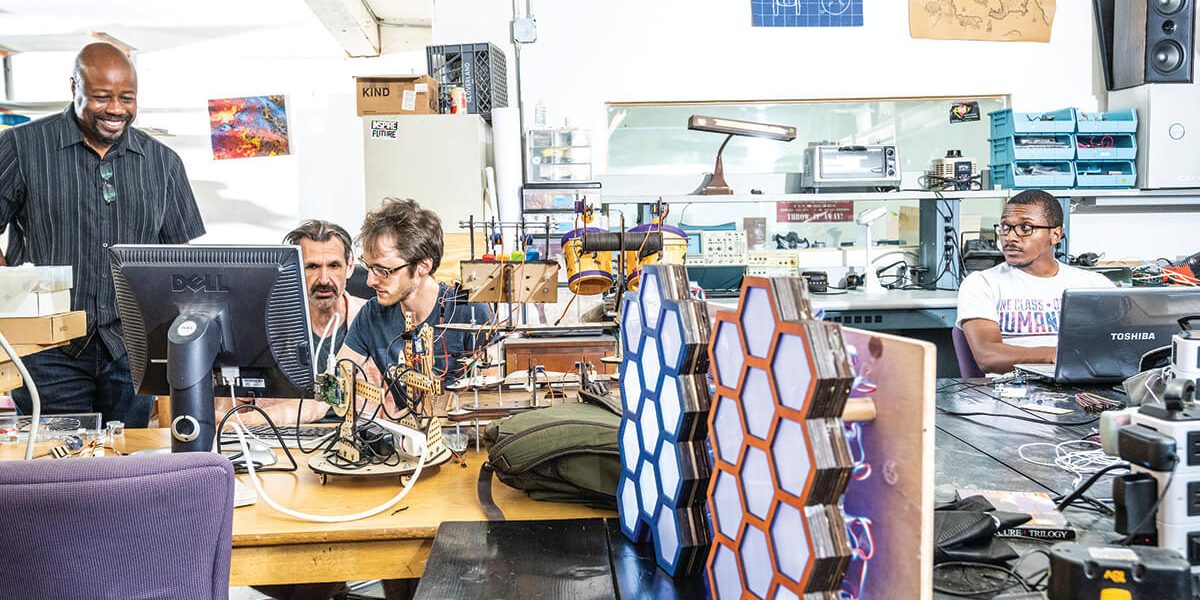Science & Technology
(N)ode to the Code
The Baltimore Node is home to a community of tech-minded creatives.
When the Baltimore Node hackerspace formed in 2009, its handful of members worked out of a small room on North Avenue, usually glued to their individual design or construction projects, but always gathered around a long table with a single power strip in the center. Ten years and four locations later, the Node now occupies a 2,600-square-foot loft in the Station North Arts District filled with tools—including a 3-D printer, bandsaws, and laser cutters—along with a community of technological creatives. And yes, the Node still has that old power strip, although the plugs don’t work anymore.
The idea for the Baltimore Node collective originated from a Twitter thread about creating a local hackerspace, a place where tech-minded makers could share resources and ideas. Two of the people who responded, Mark Huson and Adam Bachman, met for a beer at Hampden’s Golden West Café to iron out a plan for the Node, and through a few subsequent meetings, the two attracted their crew of early members.
Now for a $50 monthly rate, members get 24-hour access to the Node’s collection of high-tech tools and its shared workplace where technology, artistic design, and entrepreneurship come together. Todd Blatt joined the group a few months after its founding because he needed a bandsaw to complete his movie-prop replicas of the chess pieces from the film Inception. He attended one of the Node’s weekly OpenHacks, where anyone in the community can freely use the loft’s assets. “I quickly learned that the biggest resource at the Node was the community—not the machines,” Blatt says. “I could learn from all these other people who know tons of stuff.”
Phil Edwards, vice president of the group, says that hackerspaces offer an alternative to a culture that encourages consumers to throw products away after one use. The Node appeals to people who want to make things from scratch or fix things when they break. “We’ve stayed true to our roots,” Edwards says. “It’s geared towards getting messy and making something cool.”
Even as other local hackerspaces have formed in the past decade, the Node leadership team has stayed true to the group’s founding collectivist principles, meaning that members take responsibility for their own safety, especially when using dangerous machinery, and everyone is expected to keep the space clean and organized. For Edwards, that collectivist flavor makes the Node unique to area hackerspaces. “We’re the hackerspace with the least red tape, and we pride ourselves on that,” Edwards says. “There was an old saying around here—‘don’t make us make a rule is the only rule.’”
